A High Court judge has sparked outrage after wishing ‘all the best’ to the convicted terrorist behind the 7/7 London bombings as he prepares to be released back into the community.
Sir Robert Jay made the comments during a hearing involving Haroon Aswat, 50, who is due to leave a psychiatric hospital and return to live with family in Batley, West Yorkshire.
Aswat, an al-Qaeda extremist, has admitted his role in the 2005 attack that left 52 dead, and even claimed he helped mastermind the 9/11 atrocity in the US.
Despite this, and despite warnings from counter-terror police, he is expected to walk free without any GPS monitoring or ankle tag because of a legal loophole that prevents surveillance of psychiatric patients.
The judge’s remarks during the hearing at London’s Royal Courts of Justice, revealed in a court transcript obtained by The Sun, clearly state that Sir Robert wishes him ‘all the best’.
He said: ‘I have to wish you all the best and say to you that the way forward is to keep on your medication, listen to the advice you are going to get, and keep out of the sort of things you were doing.
‘Because you saw where it ended up and you do not want to go back to that, I am sure.’
The hearing marked Aswat’s first public appearance since he was deported back to Britain in 2022, following his conviction for terror offences in the United States. He is currently held at Bethlem Royal Hospital in South London.
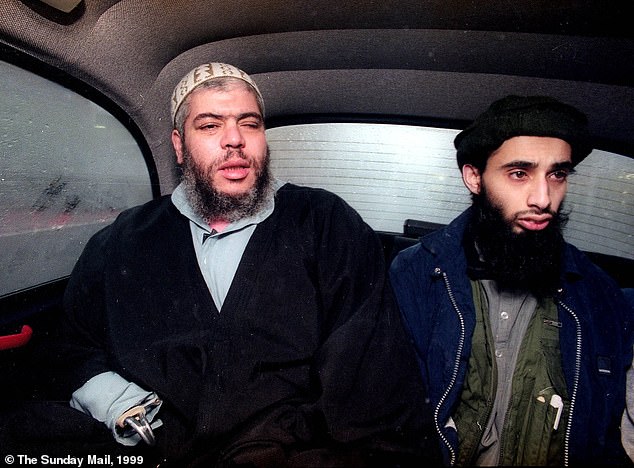
Radical cleric Abu Hamza al Masri (left) rides in a car in London, January 20, 1999, with Haroon Aswat (right)
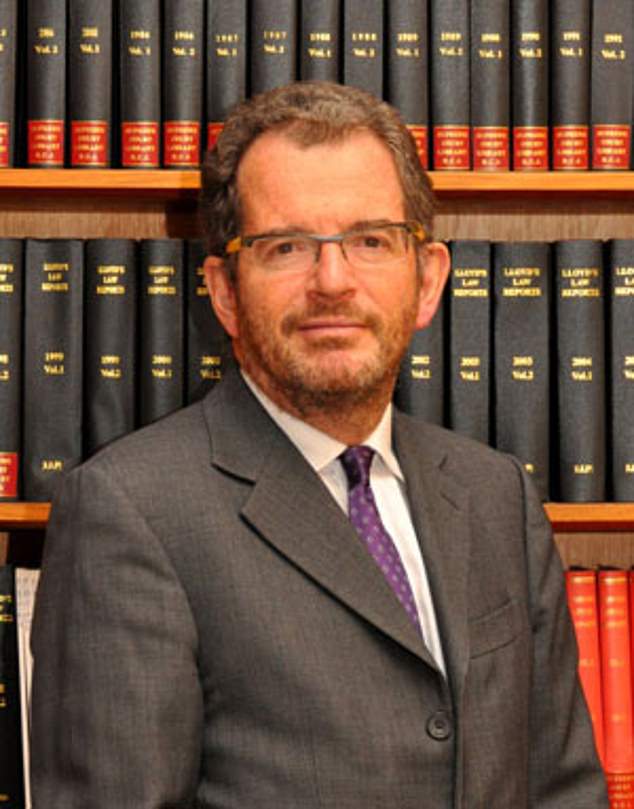
Sir Robert Jay (pictured) made the comments during a hearing involving Haroon Aswat, 50, who is due to leave a psychiatric hospital and return to live with family in Batley, West Yorkshire

Although never charged over the 7/7 bombings, Aswat was linked to the attack after police traced 20 calls made by the suicide bombers to a phone linked to him
High Court documents show that probation officials refused to carry out a risk assessment due to rules that prevent checks on psychiatric patients.
That decision left senior police deeply concerned.
Detective Chief Superintendent Gareth Rees of the Metropolitan Police’s Counter Terrorism Command told the court: ‘He has spoken positively of his time with al-Qaeda in Afghanistan and expressed aspirations to reconnect with them.
‘Based on my experience, this is conduct which gives me grave concerns about the risk which the defendant poses to the UK’s national security and to the public.’
Aswat trained in al-Qaeda camps in Afghanistan prior to 9/11, and helped radical hate preacher Abu Hamza establish a terror training camp in Oregon in 1999.
US investigators also found his name in documents recovered from a Pakistani safehouse used by Khalid Sheikh Mohammed, the chief planner of the 9/11 attacks.
Although never charged over the 7/7 bombings, Aswat was linked to the attack after police traced 20 calls made by the suicide bombers to a phone linked to him.
Weeks later, he was arrested in Zambia carrying a terror manual and suspected bomb-making materials.

A bomb damaged Circle Line tube stopped between Liverpool Street and Aldgate stations in London
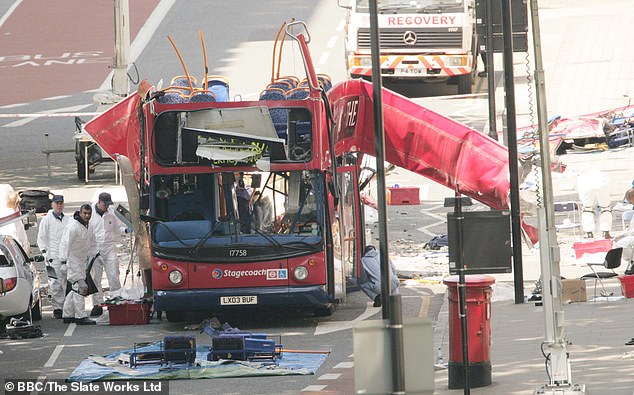
Islamist suicide bombers struck on three Tube trains and a bus in the July 7 terrorist attacks in London in 2005, killing 52 people and injuring more than 770
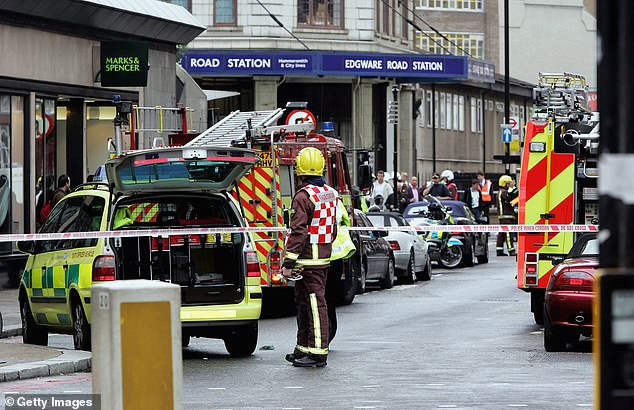
Emergency services at Edgware Road station following a series of explosions which ripped through London’s underground tube network on July 7 2005
He fought extradition for nearly a decade on mental health grounds before finally being sent to the US in 2014.
He pleaded guilty to terrorism offences in 2015, receiving a 20-year sentence that was later reduced to seven years due to time spent in custody in the UK.
While in US custody, Aswat made chilling admissions, saying: ‘If you think I am a terrorist, I don’t shy away from my responsibility.’
He also claimed he was a mastermind behind the 9/11 attacks and the 2005 bombing in London.
US authorities had strongly opposed his early release, with court papers stating he is a ‘terrorist’ and ‘foot soldier’ of al-Qaeda.
They also noted he had previously refused to take psychiatric medication, complaining it made him feel ‘sleepy’.
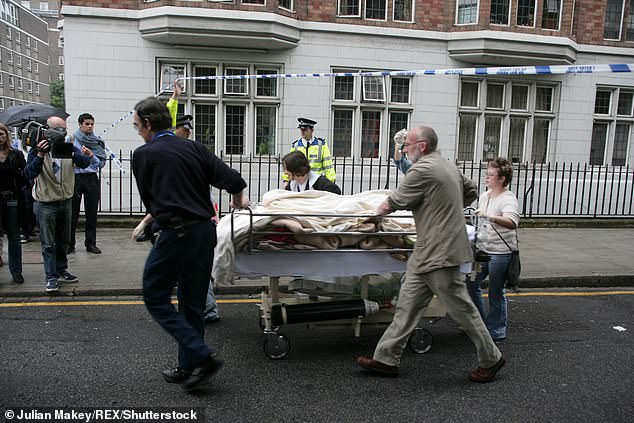
A victim of the explosion is stretchered to a waiting ambulance
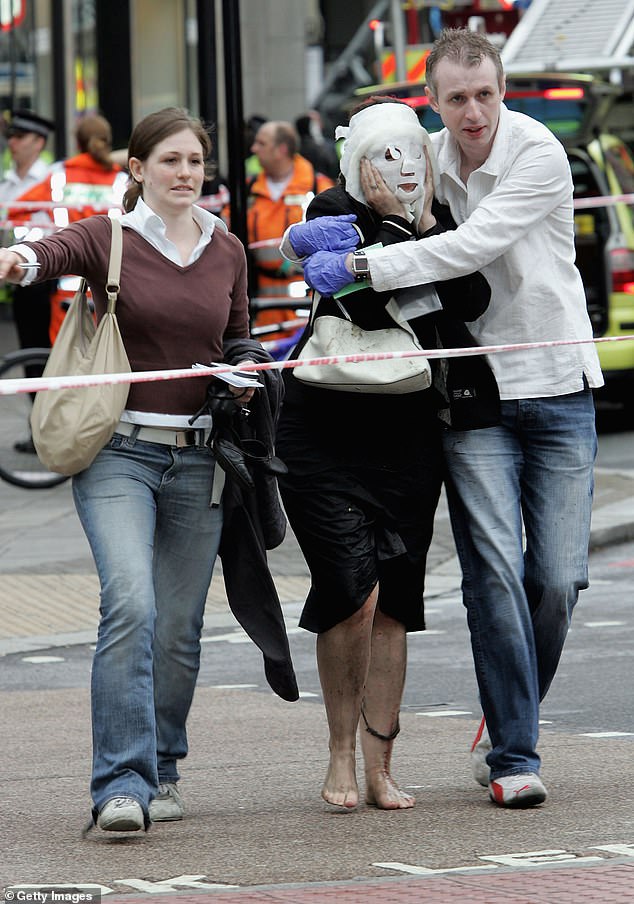
Paul Dadge (R), 28, and an unidentified person help Davinia Turrell (C), 24, to safety at Edgware Road underground station after several bomb blasts
A British Government source declined to confirm when Aswat will be released but confirmed he had completed his sentence and was currently under psychiatric care.
The source insisted he would be subject to ‘robust monitoring’ for 30 years.
A Government spokeswoman said: ‘If any individual poses a threat to national security the police and intelligence services have a range of powers they can apply.
‘We will always do whatever is necessary inside the law to protect the public from any risk posed by former terrorist offenders or people of terrorist concern.’











